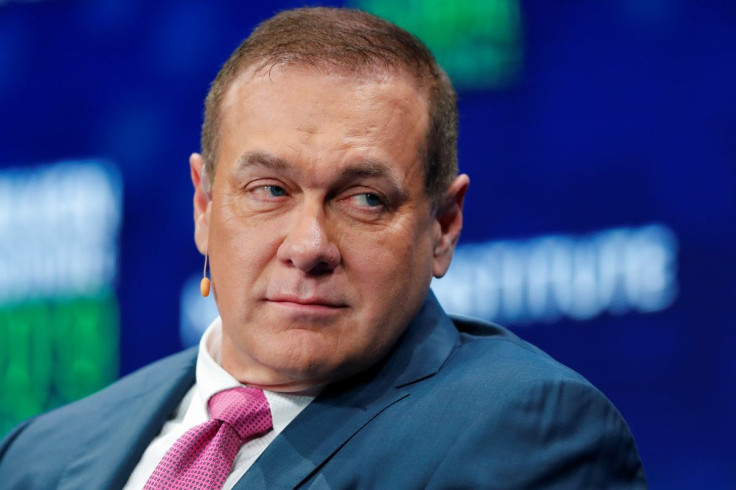Fed Funds Rate Above 1.75% 'Too Restrictive' As Financial Conditions Deteriorate - Guggenheim's Minerd

The U.S. Federal Reserve may be forced to rethink its hawkish stance as it hikes interest rates in the face of a slowing economy and deteriorating market fundamentals, Guggenheim Partners' Global Chief Investment Officer Scott Minerd said on Tuesday.
"The neutral rate is probably lower than where the Fed thinks it is ... by June when the Fed funds rate is expected to be about 1.75%, any tightening beyond that would be restrictive," Minerd said on the sidelines of the World Economic Forum meeting in Davos, Switzerland.
In their efforts to bring inflation under control, policymakers have underestimated the impacts of shrinking the central bank's balance sheet while simultaneously hiking rates, he told the Reuters Global Markets Forum, adding that market participants were also underestimating these risks.
Current market pricing puts the federal funds rate in a range between 2.75% and 3.00% by the end of 2022.
Minerd thinks a recession can be avoided if the Fed pivots to a more accommodative stance by the end of the year, barring which, he anticipates one in 2023.
Guggenheim, which has over $325 billion in assets under management, is overweight corporate credit and prefers current valuations in the investment-grade space over riskier high-yield debt.
Minerd sees worsening financial conditions as especially obvious in credit markets, citing the example of used car marketplace Carvana's bond offering earlier this year, which struggled to find buyers before Apollo Global Management stepped in.
"Anecdotal evidence suggests banks are stepping away from the leveraged loan market, given the losses associated with the Carvana experience," he said.
Guggenheim has a bearish stance on equity markets, Minerd said, adding that reducing equity "beta," in his portfolios, or volatility compared to the overall stock market, has become a key priority.
On the other hand, Guggenheim's portfolio of special purpose acquisition companies (SPACs), a sector that has seen significant volatility this year, has outperformed the broader stock market, he said.
(This interview was conducted in the Reuters Global Markets Forum. Join GMF on Refinitiv Messenger: )
© Copyright Thomson Reuters 2024. All rights reserved.





















